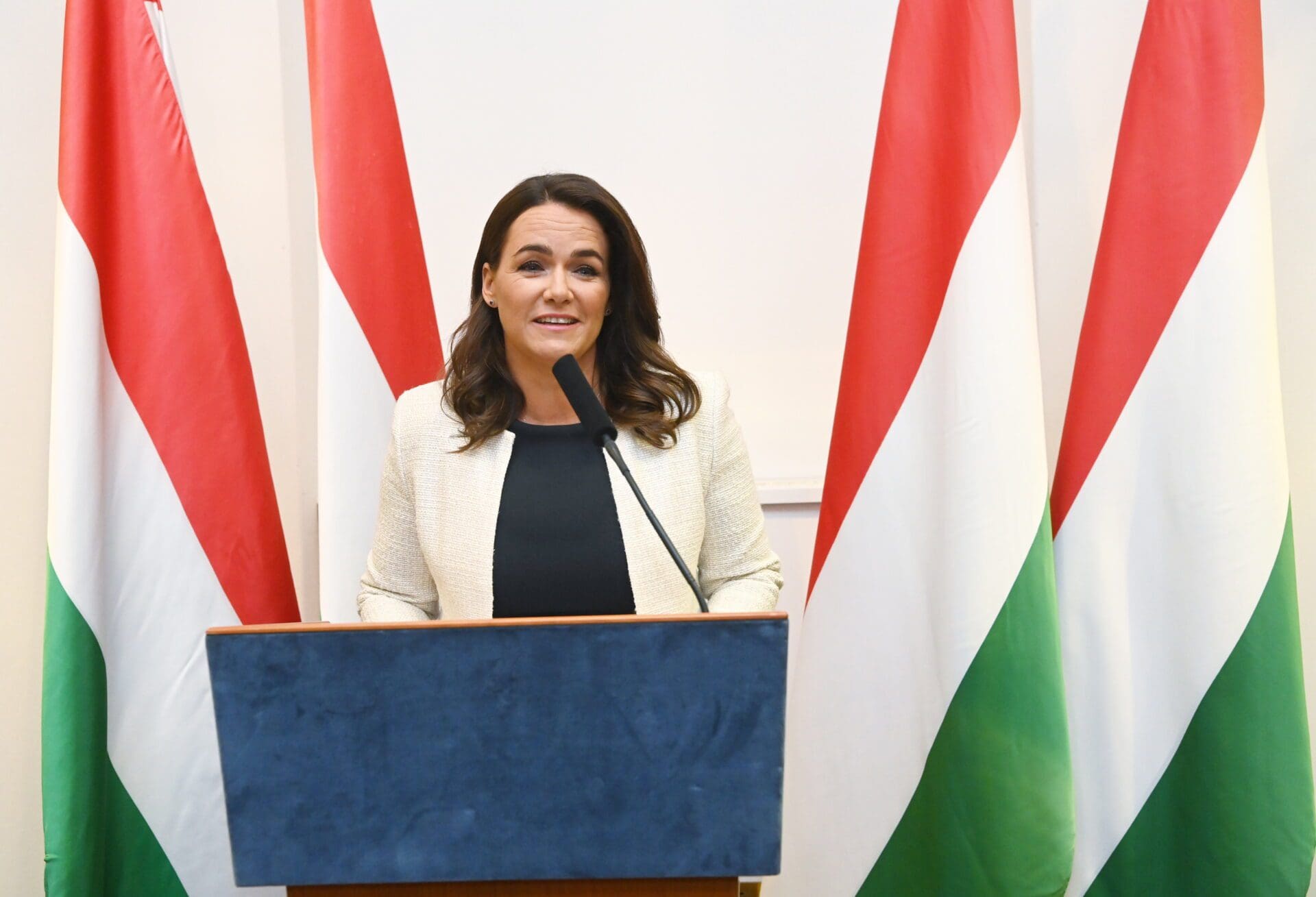Katalin Novák, the first female President of the Republic who has spoken out on women’s issues on several occasions, has been in office for half a year now. However, this is still not good enough for feminists, as for them even a man would be better than a conservative woman.
A token woman, a puppet, the Trojan horse of the extreme right—since her election in 2022, feminists have been throwing around these and similar labels in connection with Katalin Novák, Hungary’s first female head of state. The fact that more and more women hold high-ranking state positions in our region has also provided a great opportunity for feminist complaints—most recently, for example, Giorgia Meloni becoming Italy’s first female prime minister triggered the whining.
Even though positive changes are taking place in the political representation of women, the voices that used to be pro-women and particularly pro-quota have recently faded away in Hungary, because of a glitch in the story: the first female head of state was voted into power by the conservative government’s majority parties in parliament.
A typical example of this development is that although a few years ago long analyses were published on WMN, one of Hungary’s most popular women’s magazines, about why the proportion of women in politics should be increased, a few weeks ago there was a discussion on the same platform with statements like ‘when we see female leaders in token, symbolic positions, it is practically the abuse of the female body’, and ‘politicians have long known that no one is a more authentic seller of patriarchy than a conservative woman’. The Patent Association, which deals with violence against women, went even further, claiming that ‘this is an old but still effective trick: to use a nice-looking female face to suppress women and present it as if it were a manifestation of women’s equality’. (The funny thing is that while the organisation fights against sexism as a rule, it also characterizes the President of the Republic with an attribute mostly ascribed to women.)
Essentially, it seems that in liberal feminist circles, a conservative female leader is worthless,
as someone who by definition cannot represent women’s issues and who actually suppresses women. For feminists, only those who are elevated to high-ranking positions by at least one left-wing political community can be considered real female politicians.
Let us look at the facts: at the moment of her inauguration, Katalin Novák declared that she wanted to be the president of all Hungarians, and thus by definition of all Hungarian women, too. She has also drawn attention to the situation of women several times: at the UN Women’s Political Leadership Forum in New York, for example, she stated that it is necessary for women to have the opportunity to live a full life and to not have to choose between motherhood and a career. On several occasions, she visited women in the most disadvantaged parts of Hungary as well, to show how much they do for their local communities.
She also stood up for women, too, when she sent a message to the nation from one of the country’s leading universities in which she called for the training of ‘highly skilled, critical young people’, or when she worked as a mentor of outstandingly talented students to help them make it into the world’s leading universities—regardless of whether they were boys or girls. Because, one might assume, it is also important for feminists that the two sexes are treated equally—and undoubtedly, there is no better arena to develop this attitude of inclusion than education. And speaking of education, it is also worth mentioning that
the President of the Republic has also called for urgent measures to increase the financial security of teachers
—a profession in which, as we know, women are overrepresented.
To sum up: overall, the fact that Hungary has a female head of state now is a positive message from the point of view of women, as it proves that it is indeed possible to rise to top political positions as a woman and represent women’s interests in that position. Katalin Novák is doing her job, representing both women and men—whether some feminists are happy with that or not.
Click here to read the original article








